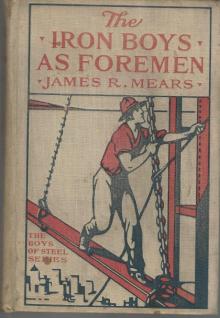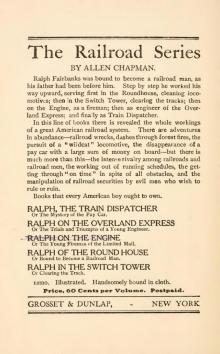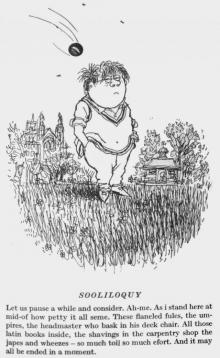- Home
- Mrs. Molesworth
The Constant Prince Page 23
The Constant Prince Read online
Page 23
later, and while the Moors were taking their evening meal, theChristians, with whom of course they might not eat, sat together apart,eating the coarse black bread provided for them. It was their mostpeaceful moment, for they could then talk freely with each other.
The prince was one of the last to join them, and as he came up slowlyand wearily, several sprang up to meet him, trying to form a couch forhim with their rough garments, and offering to bathe his feet, whichwere bruised and dusty.
Fernando accepted their services gently and gratefully, asking them howthey had fared during the day.
"As ill as usual, my lord," said one sulkily; "and small prospect ofanything better at Fez. But the infidel dogs might beat my brains outere I would consent to fawn and crouch and feign compliance, as DomFrancisco did but now. I scorn it!"
"Scorn will not give us a better supper than black bread; see, here aredates, to flavour it," said Dom Francisco, while the first speaker, anolder man, snatched the gift from his hand and flung it away; and therewas a disproportionate outcry of annoyance and vexation. Worn-outnerves and tempers were easily raffled, and the men who had resignedthemselves to lose their freedom could ill bear the loss of a handful ofdates.
"Ah, hush, my friends," said Fernando; "worse than blows without arequarrels within."
"Now, now, my sons," said Father Jose, who had come up unperceived,"that was ill done. Now, if my lord of Viseo will not fling them away,here are oranges and a piece of dried goat's flesh, given me by that ladin a green caftan, who has, methinks, a less hard heart than the rest.And it has struck me, my children," proceeded the good father, "that theblessed Paul and Silas would not have converted their jailer had theybickered with each other, or grumbled at the prison fare, instead ofsinging Psalms in the darkness of the night. Wherefore, as singingcauses the Moslems to blaspheme, I propose, while we divide the goat'sflesh, to recite a portion of the Psalter."
Father Jose was a powerful though elderly man, and as he had never beenaccustomed to a luxurious life, he was able to endure the privations andhardships of his captivity better than most. He was good-tempered, too,and cheerful, and was without the heart ache that almost all the otherscarried about with them for near and dear ones, lost, it seemed, forever. And, more than all, his faith was strong and clear, and a realsupport to the failing hearts of others.
Fernando's weak health caused him to suffer far more physically than anyof his companions: he had been very ill at Arzella, and was even nowhardly able to bear the fatigue of each day's journey. Nor did theblood either of Avis or Plantagenet run so tamely as to make insultseasy of endurance; he pined for his brothers, and felt every trouble ofhis comrades as if it were his own. But then, too, he was able to feelthe comfort of their love and devotion. As he lay on the ground, tooweary to eat or take much share in the conversation, his face, worn asit was, had not its old restless look, and his eyes as they watched thesunset, were full of peace. It was not only that he had lost the senseof an unfulfilled desire; not only that he felt that his sufferings_did_ serve the cause that he loved so well; better still than this, thepassionate will that could see but one way of serving had learnt tosubmit at last, till he could take each trial patiently as it came fromthe Hand that sent it, and--completest victory of all--accept also eachalleviation. The evening air and the fair landscape, the interval ofrest and quiet, were really soothing to him, and there was something inthis peacefulness which drew all his comrades to his side, each with histale of trouble, or with the offer of some little service as comfortingto himself as to the prince.
"We are still together," was a consolation even in the midst of theirsuffering.
Alas! it was soon the only one left them. Too soon they looked back onthat hard journey as a period of comparative happiness. When theyreached Fez their masters changed. Whether the sea-port towns had beenconsidered as too unsafe in case of a siege, or whether the AfricanMoors had been enraged by the strong representations of the Moorish kingof Granada--that, under all the circumstances, the heavy ransom ought tohave been accepted,--Zala-ben-Zala sent his prisoners into the domainsof Abdallah, the young king of Fez, whose prime minister was namedLazurac, and was one of the most savage monsters of history.
The unhappy prisoners were driven, with stripes and curses, through thestreets of Fez, the dark-faced Moors flinging rude words, and evenstones, at them as they passed.
"_One_ bore His Cross through a raging multitude, and for us!" saidFernando to Manoel, who was near him; but as he spoke they came closeunder the frowning towers of the Darsena, a kind of castle, whichguarded the town. Here they hoped at least for rest and shelter; and itwas with almost a sense of relief that they were driven through thegates and into the inclosure of the castle, and on--through a longpassage, down--down a sort of rough slope, through some great doors,which were locked and barred behind them, leaving them, in an utterblank of darkness, they knew not where.
Utter darkness--not a ray of light penetrated their prison. As theysank down, wearied, they could not see each other; when they put outtheir hands they could feel nothing near; all was silent and black asthe grave.
"Let us pray," said Father Jose, and began, "Out of the deep have Icalled unto Thee, O Lord."
It was the deep indeed--the very depth of misery; and as they began torecover from the fainting weariness of their terrible march the horrorof the darkness struck them more forcibly, and they were afraid to move,lest they should lose each other in unknown depths, till Fernandoproposed that the least exhausted should try in a body to reach the wallof their prison, but never going beyond easy recall from himself and oneor two others, who were completely spent.
They found that their dungeon was of considerable extent, but they wereafraid then to penetrate all across it. It was damp, too, and bitterlycold, and no provision of food or drink seemed to have been made forthem. It seemed like the intentional ending of their sorrows; and numb,stupefied, and utterly hopeless, they crowded together on the cold floorof their dungeon, unknowing whether minutes, hours, or days passed overthem, till suddenly their door was opened, and a man with a basket and adim lantern in his hand was allowed to enter.
"Prisoners," he said, in broken Portuguese, "I am a Majorcan merchant,and am allowed to sell bread to the prisoners."
"For the love of Heaven, a light," cried Manoel, "that we may see ourmisery."
The merchant came towards them, and turned his flickering light on theface of Fernando, who lay, almost senseless, in Father Jose's arms.
"We have no money to buy of you, good friend," said the priest; "but ifof your charity you could give us a drop of wine for our dear Lord--"
The Majorcan knelt down, put his lamp into the hand of Manoel, andpouring out a little wine, held it to the prince's lips; and as ittouched them he opened his eyes and looked round, as if bewildered. Themerchant had a good grave face, and, when they repeated that they couldnot buy of him, he smiled and said, "Still, he came there to trade withprisoners," and put his provisions down beside them; and he also leftthem the means of making a light; but this he advised them to usesecretly and at rare intervals, as for that he had no leave. He showedthem the extent of their prison, and left them two or three sheepskinsto form a bed. Whether at this time Lazurac really cared if hisprisoners perished or not, or whether he intended to force the princeinto entreating his brother to deliver him at any cost, certain it isthat the few visits of this good Samaritan were all that kept hope, nay,life itself, in the wretched prisoners. The hopeless darkness, theterrible inaction, and the damp, dark atmosphere, broke down both healthand spirits. Some, to add to the misery, were seized with fever, andlost their senses, raving wildly; and though Fernando was saved fromthis, he was never able to raise himself from the ground, and sufferedterribly from pain and weakness. But through the three long months ofthat terrible trial he never uttered a complaint, save of hiscompanions' sufferings; and little as he could do for them, there was aninfluence of peace in the touch of his hand and the sound of his voice.There
were times when, treated like brutes as they were, the animalnature awoke within them, and they were ready to tear each other topieces in the bitterness of their despairing fury; other times, whenthey sought a kind of relief in wild ribald jests, and many longintervals of sulky, faithless despair; when even Father Jose's prayersand encouragements were unavailing. Then the voice that was alwaysgentle, the words that were always pure, the faith that saw beyond thedungeon walls, would woo them to a better mind; and the love they borehim helped them to hold to the love of God; and when, now and again, bythe faint light of their little lamp, Father Jose took of the goodMajorcan's bread and wine, and celebrated the Holy Eucharist, as longago it had been celebrated by martyrs and confessors in dens and cavesof the earth, they felt the power of that Holy Presence, and attained

 The Iron Boys as Foremen; or, Heading the Diamond Drill Shift
The Iron Boys as Foremen; or, Heading the Diamond Drill Shift An Enchanted Garden: Fairy Stories
An Enchanted Garden: Fairy Stories Grandmother Dear: A Book for Boys and Girls
Grandmother Dear: A Book for Boys and Girls Ralph, the Train Dispatcher; Or, The Mystery of the Pay Car
Ralph, the Train Dispatcher; Or, The Mystery of the Pay Car The Children of the Castle
The Children of the Castle The Magic Nuts
The Magic Nuts Uncanny Tales
Uncanny Tales Silverthorns
Silverthorns The Third Miss St Quentin
The Third Miss St Quentin Christmas-Tree Land
Christmas-Tree Land Philippa
Philippa Jasper
Jasper The Little Old Portrait
The Little Old Portrait Mary: A Nursery Story for Very Little Children
Mary: A Nursery Story for Very Little Children Us, An Old Fashioned Story
Us, An Old Fashioned Story The Constant Prince
The Constant Prince Blanche: A Story for Girls
Blanche: A Story for Girls The Cuckoo Clock
The Cuckoo Clock The Carved Lions
The Carved Lions Tell Me a Story
Tell Me a Story That Girl in Black; and, Bronzie
That Girl in Black; and, Bronzie Sweet Content
Sweet Content Boys and I: A Child's Story for Children
Boys and I: A Child's Story for Children The Man with the Pan-Pipes, and Other Stories
The Man with the Pan-Pipes, and Other Stories Bert Wilson's Fadeaway Ball
Bert Wilson's Fadeaway Ball Nurse Heatherdale's Story
Nurse Heatherdale's Story Adventures of Herr Baby
Adventures of Herr Baby Shaggycoat: The Biography of a Beaver
Shaggycoat: The Biography of a Beaver Adventures of Prince Lazybones, and Other Stories
Adventures of Prince Lazybones, and Other Stories Adventures of Piang the Moro Jungle Boy
Adventures of Piang the Moro Jungle Boy